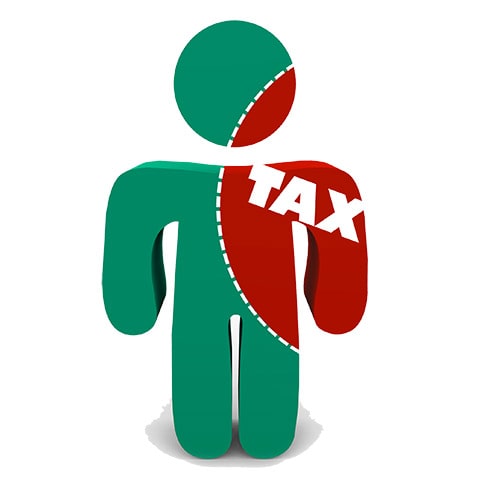UK Tax Considerations for Short Term Business Visitors
 Short-term business visitors are people who do not live in the UK but who make business trips to the UK and who works for a UK firm and/or are directors of UK companies; the tax position of the individual in the UK must be taken carefully into account. UK payments may be payable, but the UK tax may be reduced or refused by a variety of alternatives. The UK company will be treated as an employer of the person and will have to deduct the PAYE tax as normal even if the international company pays the individual. This applies.
Short-term business visitors are people who do not live in the UK but who make business trips to the UK and who works for a UK firm and/or are directors of UK companies; the tax position of the individual in the UK must be taken carefully into account. UK payments may be payable, but the UK tax may be reduced or refused by a variety of alternatives. The UK company will be treated as an employer of the person and will have to deduct the PAYE tax as normal even if the international company pays the individual. This applies.
Persons in their country of residence are usually taxed on their worldwide income. The same income may therefore be taxed twice. The person would have to claim double tax relief in such circumstances.
Do you qualify as a Short-Term Business Visitor (STBV)?
The STBVs are:
- Directors and non-executive directors, who travel between countries for work and work in another country.
- Employees who live for pay in one country but work in other countries on a daily basis.
- Staff living and employed in a country other than their country of employment and/or income.
- Secondees (A person who is transferred temporarily to alternative employment or seconded.) or assignees typically involved in a structured curriculum or process (although this is not always the case).
- Despite the categorization abroad as STBVs, they can also be contractors and can be considered workers in the UK.
STBVs can lead to tax complications such as
- Payroll.
- Social security.
- Income tax filings for the employees.
- Permanent establishments under corporate tax rules.
Unless this risk is controlled, the effects can be expensive and negative.
- Backdated payroll taxes, as well as interest and penalties, can result in payroll non-compliance.
- The failure to allow workers to join a country will cause instability in the company.
- Employees who may take action according to the labor laws of two countries which lead to complicated and expensive terminations.
Compliance actions that can be taken
- Reporting to the tax authorities.
- Adding workers to payroll.
- Applications for protections and tax filings and returns for social security cards.
- To avoid enforcement requirements occurring in a region, controlling employee attendance.
If the employer is not in the United Kingdom and the host employer is not in the UK, no PAYE is technically due. That does not mean that the employee is in the UK not taxable – it may be appropriate to file UK self-assessed tax returns. The Payee should start on the first day of work for the employee in principle if an employee works in the UK. This causes administrative issues such as:
- Per month the compilation of income details on multiple payrolls.
- The management of real-time (RTI) data could also lead to double taxation of the same profits and to double payroll obligations.
What is PAYE (Pay as You Earn System)?
In Britain, the majority of workers are paying income tax via the PAYE system. This is used by your employer to retain income tax and national wage insurance payments directly to HMRC (HM Revenue & Customs).
Easements
 HMRC offers two options, which applies on application (a special Payment Arrangement and an Appendix 4 STBVA agreement); they will not be used without the specific approval of an employer from HMRC. The easements are not applicable to a UK company's directors. Non-resident directors in the UK are considered to hold any office or employment, so these payroll obligations need to be met carefully.
HMRC offers two options, which applies on application (a special Payment Arrangement and an Appendix 4 STBVA agreement); they will not be used without the specific approval of an employer from HMRC. The easements are not applicable to a UK company's directors. Non-resident directors in the UK are considered to hold any office or employment, so these payroll obligations need to be met carefully.
Short-Term Business Visitor Agreements
HMRC allows companies to enter into a "STBVA" (Short Term Business Visitor Agreement), which removes the PAYE requirement. It provides an exemption from PAYE where there is relief under Double Taxation Agreements (DTA).
Therefore, the individual is not taxed on UK income and does not have to claim double tax relief. The eligibility criteria for an STBVA are:
- The individual must be resident in a country with which the UK has a relevant Double Taxation Agreement;
- The individual must be working for a UK company or a UK branch of an overseas company but remain an employee of an overseas company;
- The individual is expected to stay in the UK 183 days or fewer in any 12 month period;
- The UK company must not ultimately bear the cost of the employment. Even if an individual is legally employed by a UK company, they must be economically employed by an overseas company.
People who visit a UK company from outside the UK will not be eligible for an STBVA because HMRC considers that an overseas branch is part of a UK company, and thus, the final criterion 4 above is not fulfilled.
Under certain circumstances, an individual may still be entitled to a contract where pay to the UK host company is charged (see above criteria 4), subject to the fact that a maximum of fewer than 60 days for the employee's visits to the UK is in any tax year. To confirm that the 60-day rule was met, the employer would need to have a sufficiently precise recording mechanism.
Depending on the number of days spent in the UK, reporting requirements vary considerably. These are due by 31 May, after the tax year-end of 5 April, where reports have to be submitted. STBVAs are not eligible to be appointed by directors.
PAYE Special Arrangements
PAYE's special arrangements deal when an individual visit a branch overseas, or a country with which the UK has no twin tax treaty, such as Brazil, does not have an STBVA available.
- Where a host employer has adopted a 'special arrangement,' the payment may be calculated annually, provided that a person has not spent more than 30 working days in a fiscal year.
- This alleviates the administrative pressure and makes it easier to pay no tax if personal allowances are due. Certain by-pass tasks can be exempt from working days measurement.
The employer is responsible for deciding whether a day is considered as a day of work, whether travel from or to the UK is held on that day. The deadline for filing is 19 April after fiscal year-end, and any tax owed must be collected by 22 April after-tax year-end. Directors do not count for 'special provisions' for PAYE.
National Insurance Contributions
UK National insurance contributions to be taken into account independently from taxation plans. There is a 52-week exemption from UK National Insurance contributions. That ensures that national insurance typically would not have to be considered until 52 weeks after permanent residence. In certain cases, there are different EU laws.
Non-UK Resident Directors of UK Companies
A non-UK resident manager is an office holder in a UK business, and thus his salary is subject to UK tax in relation to his position in the UK. If the person is not paying for the UK directorship, no tax should be levied, whereas the HMRC may contend that the position of Director should be apportioned to a proportion of the Director's overall remuneration. It is also useful to assess if the payment is attributable to the UK directorate whether the Director's employment arrangement decreases the likelihood that HMRC plans to devote a portion of total remuneration to the position of the UK.
Self-Assessment Tax Returns
Resident Non-UK directors are subject to the UK income tax self-evaluation scheme. Where the tax return is issued by HMRC, it should be completed and submitted by the end of 5 April by 31 January, after the relevant tax year. If HMRC does not issue a tax return yet UK tax is due; the person must inform HMRC that the return conditions apply. Sanctions and interest shall apply if they do not. In the case that a return is filed, but no tax is owed, the HMRC will then not request an annual return but does routinely verify if one is due.
Accommodation and Travel Expenses
As the person is the Director of a British firm, the UK is viewed as the regular worksite, and the company will then pay lodging and transport costs. In closely specified cases, there are several exceptions to this law.
 Reporting
Reporting
When an individual is booking and paying for a flight or hotel, the employee's P11D form will contain the expenses. If the individual pays the costs and is then reimbursed, the costs shall be considered as wages, and Reimbursement shall be applied. These payments can be included in the Payment Settlement Arrangement, the filing obligation may be withdrawn, and tax obligations may then be paid directly to the employer.
Social Security - "NIC"
Employers must also take National Insurance Contributions (NICs) into account. As STBVs are typically located in another region, a cross-border approach is required for developing due NICs. If domestic laws apply or whether the terms of specific arrangements apply is usually to be understandable.
National Insurance Contributions ("NICs") for Directors
Depending on considerations such as the Director's homeland, whether the NICs are in the EEA and whether or not a social security agreement has been reached between the government and UK. The Director could be excluded from NICs in the UK where sufficient requirements have been fulfilled.
 English
English
 عربي
عربي Русский
Русский 官话
官话 português
português
 Türk
Türk 






.jpg&w=120&h=80&zc=1)









